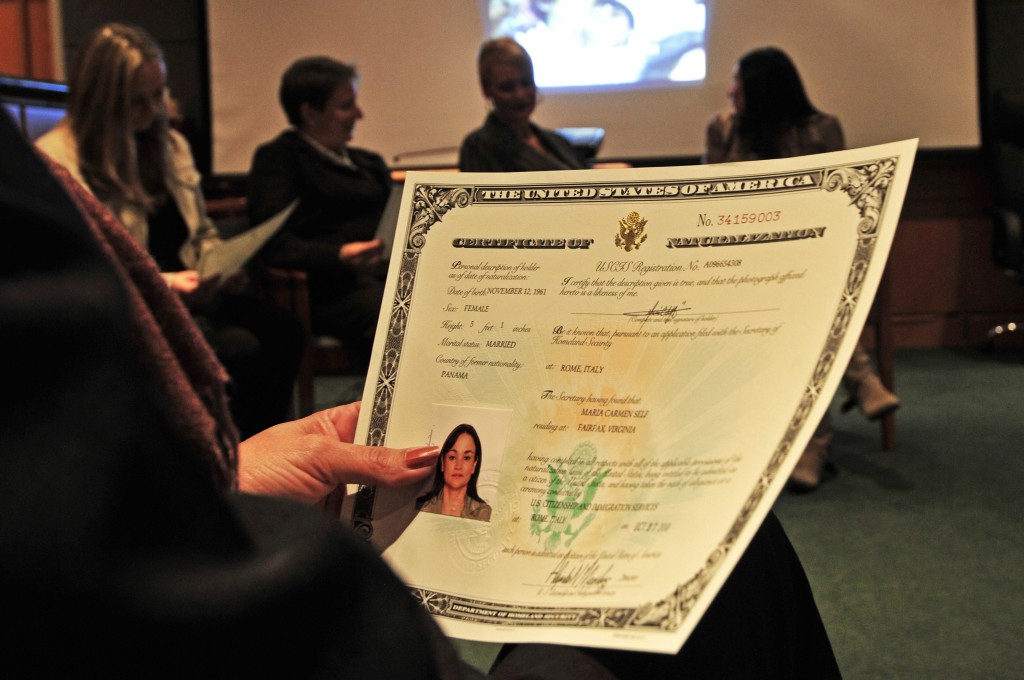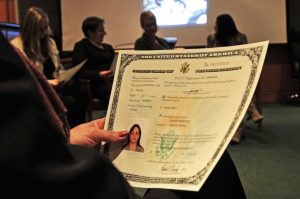
Fact About Citizenship Education.

What is Citizenship Education ?
Citizenship education is an academic disciplines that teaches right and duties of a citizen, status of citizen asa well as the need to work together to ensure their fundamental human rights.
Who is a citizen of a state ?
In ancient Greece, the Anthenian society, particularly during the period of Plato and Aristotle, the meaning of the concept of citizen represented a far cry from what it’s called today. Plato and Aristotle for example, are citizen who were born into or classified within the penumbra of the ruling class of the Athenian state or better still, the Aristocratic class; the guardians, philosopher-kings etc. They alone excercise the right to life, private property, leadership education, vote and be voted for, entrepreneurs, teachers and so on.
While other are regareds as non-citizens such as people of low birth, proletariat or servant.
According to “Oxford dictionary, it defiines citizenship as one who has full rights in a state either by birth or by gaining such rights”. Hence a citizen is an individual or persons with full fundamental human rights.
It is also usual to describe the citizens of a state as Nationals of that country either by birth or by gaining such rights.
In this case, the word citizen is synonymous to National and we’re often interchange.
Citizenship status have various methods of acquiring which is either by birth or legal process. Citizens can still be acquire both.
METHODS OF ACQUIRING CITIZENSHIP STATUS.
Individual can aquire citizen through various means which includes by birth or legal process.
Citezenship by birth.
Citizenship by birth known as “Jus Sanguinis” can be seen in Nigeria for instance; one being born in Nigeria or through the doctrine of Jus Sanguinis includes
1. All person who were born in Nigeria before the independence either of whose parents belongs to indigenous Nigerian Community.
2. All person born in Nigeria after independence either of whose parents is a Nigerian are automatically citizens.
3. Any persons born abroad either whose parents is a Nigerian citizen also qualify to enjoy citizenship status.
Citizenship by legal process
Naturalization is the commonest mode of acquiring citizenship aside by birth.
Naturalization is classified into five ways which includes;
1. Direct Naturalization: in this case, individual acquires citizenship by filling prescribed legal prerequisites as determined by that state.
For example; in Nigeria, ones must be a resident of a continuous period for fifteen years or more including twelve consecutive months immediately preceding application before applying to the president for the grant of certificate of naturalization.
Also, ones must satisfy the Governor of the state of residency that he or she is acceptable to the immediate community and must fulfill is obligation as other citizen does.
2. Derivative Naturalization: this means one can acquires citizenship as a result of parents or relatives through direct Naturalization.
3. Collective Naturalization: this means state that one occupying a defined territory acquires the citizenship priviges either by agreement, treaty or status annexing that territory to a new one.
Typical example is the people of Hawaii gained or acquired their citizenship of the United States before their formal incorporation into the Union in 1959.
3. Registration of another state or country: citizenship can be aquired through registration of of another state through by birth as a result of some circumstances.
4. Formal registration of spouse or minor: a spouse can be a citizen of another state by renouncing his or her citizenship of his or country (place of birth) before assuming that of her husband.
CONDITIONS FOR ACQUIRING CITIZENSHIP.
There are various conditions of aquiring citizenship status which includes…
Language
Language is one of the conditions for citizenship status. In order to be a resident of a country, one must be able to communicate with the bonifide citizen.
Language is seen as one of the most essential condition as enhance effective communication skills.
Residency
Some states requires that a person who intends to be a citizen should meet or satisfy resident requirements of a specific number of year.
For example, in Nigeria it’s fifteen years, in Britain, it’s one year, in Switzerland, it’s twelve years, in United States of America, it’s five years and above.
Moral Character
Applicants who want to be a citizen of another country is expected to be of good character and must stand morally right.
People of dubious character who intend to tarnish the image of the country are not allowed to be a citizen of another country. Hence must be of good standard and morally upright.
Oath of Allegiance
Oath of allegiance is one of the implicit requirements to renounce the Citizenship of another country or state.
Oath of allegiance is constitutional in every democratic states or country.
Now, what are the method of terminating citizenship ?
METHODS OF TERMINATING CITIZENSHIP.
Every individual have privileges in terminating citizenship by any of the following ways or circumstances:
1. Expatiation: this method is a loss of citizenship of which individual voluntary renounce his status either by birth or naturalization.
2. By Marriage: citizen may loss their citizenship whenever they get married to there’s nationality
3. Deprivation or Revocation: This involves revocation, withdrawal or cancellation of legal recognition previously granted to a citizen.
Now, what are the obligation of citizen?
OBLIGATION OF CITIZEN.
The obligated are as follow:
1. Payment of taxes
2. Voting in an election
3. Citizens are expected to placed the interest of the country first before theirs.
4. Upholding honour and dignity of the state.
5. Respect for constitutional development
6. Obedience to the aw of the land.
7. Respect for national symbol of a state.
What are the rights and duties of a citizen ?
RIGHT AND DUTIES OF A CITIZEN
1. Right to be vote and be voted for.
2. Right to dignity of labour.
3. Right to person liberty.
4. Right to life.
5. Right to fair hearing.
6. Right to freedom of thought, conscience and religion.
7. Right to private and family life.
8. Right to freedom from discrimination.
9. Right to private property.
10. Right to freedom of movement.
11. Right to the freedom of expression and the press.
12. Right to peaceful assembly and association.
In conclusion, citizenship education is an academic discipline that teaches right and duties of a citizen, status as a citizen as well as the need to work together in enhancement of political growth with the exercise of fundamental human rights.






